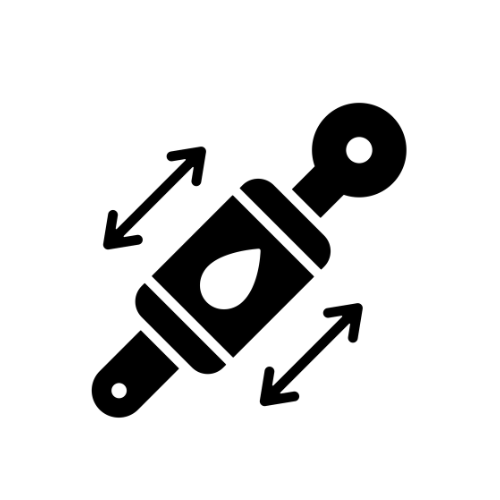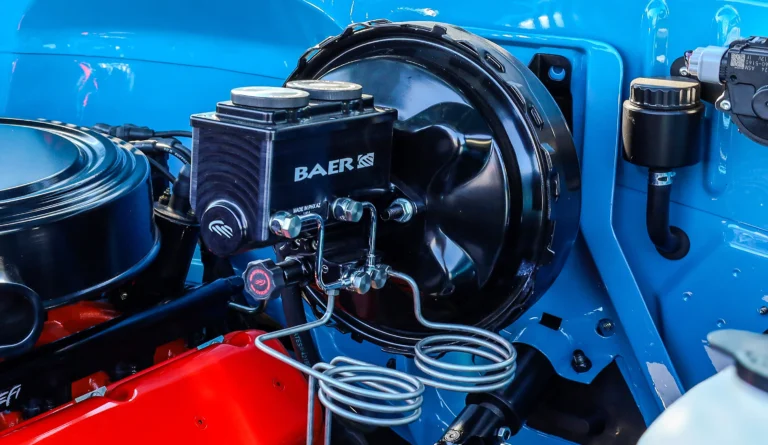Can You Drive With Cylinder Misfire? Risks & Tips
Yes, you can drive with a cylinder misfire, but it is not recommended for long periods. Driving with a misfire can cause damage to your engine.
A cylinder misfire can lead to reduced fuel efficiency and performance issues in your vehicle. It is important to address the issue promptly to prevent further damage and maintain optimal driving conditions. Ignoring a misfire can result in more severe problems and potentially costly repairs down the line.
Always prioritize the safety and well-being of your vehicle by addressing any issues promptly and appropriately.
Recognizing Cylinder Misfire
Symptoms Of A Misfiring Cylinder
One of the key indicators of a misfiring cylinder is a noticeable loss of power and rough idling. Additionally, you may experience irregular acceleration, jerking sensations while driving, and increased fuel consumption. Keep an eye out for a flashing check engine light, which often signals a severe misfire condition.
Diagnosing The Issue
When diagnosing a cylinder misfire, it’s important to perform a thorough inspection of the ignition system, including spark plugs, ignition coils, and spark plug wires. Utilize a diagnostic scanner to identify the specific cylinder that’s misfiring, enabling targeted troubleshooting. Conduct a compression test to assess engine health and detect potential mechanical issues.
Potential Risks Of Driving With A Misfire
Driving with a cylinder misfire can lead to a variety of potential risks, including engine damage, safety concerns, and increased emissions. It is important to understand these risks in order to make informed decisions about driving with a misfire.
Engine Damage
A cylinder misfire can result in damage to vital engine components, including the catalytic converter, oxygen sensors, and spark plugs. Continuing to drive with a misfire can lead to overheating, which can cause warping or cracking of the cylinder head or engine block.
Safety Concerns
Driving with a misfire can compromise vehicle safety, as it may lead to a loss of power or rough idling. This can affect the vehicle’s performance, making it less responsive and potentially dangerous in certain driving conditions, such as when accelerating or merging onto highways.
Increased Emissions
A misfiring cylinder can cause increased emissions, contributing to air pollution and potentially causing the vehicle to fail emissions tests. This can result in costly repairs and fines for non-compliance with environmental regulations.
Short-term Implications
Driving with a cylinder misfire can lead to poor performance and potential damage to the engine. It’s best to address the issue promptly to avoid safety risks and costly repairs in the future.
Performance Drop
Driving with a cylinder misfire can significantly affect your vehicle’s performance. You may notice a decrease in power, acceleration, and overall drivability. This is because the misfiring cylinder is not contributing to the engine’s power output. It can also cause the engine to shake and vibrate, making for an uncomfortable ride. In some cases, the misfire can even cause the engine to stall, leaving you stranded on the road.Fuel Efficiency Loss
A cylinder misfire can also lead to a loss of fuel efficiency. The misfiring cylinder is not burning fuel efficiently, which means that you will use more fuel to travel the same distance. This can lead to increased fuel costs and a decrease in the number of miles you can travel on a single tank of gas. If you continue to drive with a misfire, you may also damage your vehicle’s catalytic converter, which can be expensive to replace. In conclusion, driving with a cylinder misfire can have several short-term implications for your vehicle’s performance and fuel efficiency. It’s essential to address the issue as soon as possible to prevent further damage and potential safety hazards. If you notice any of the symptoms of a misfire, such as a rough idle, loss of power, or a check engine light, it’s best to have your vehicle inspected by a qualified mechanic.Long-term Consequences
Ignoring a cylinder misfire can lead to long-term consequences that can be expensive to fix. This blog post will focus on the long-term effects of driving with a cylinder misfire, including catalytic converter failure and extensive engine wear.
Catalytic Converter Failure
A cylinder misfire can cause an excessive amount of unburned fuel to enter the catalytic converter, leading to overheating and failure. A failed catalytic converter can cause reduced engine performance, increased emissions, and can be expensive to replace.
Extensive Engine Wear
Driving with a cylinder misfire can cause extensive engine wear, as the unburned fuel can wash away the lubricating oil from the cylinder walls. This can cause metal-to-metal contact, leading to engine damage and eventually engine failure. Additionally, the misfire can cause damage to the spark plugs, ignition coils, and other engine components, leading to costly repairs.
It is important to address a cylinder misfire as soon as possible to prevent these long-term consequences.
Legal And Insurance Implications
When it comes to driving with a cylinder misfire, there are important legal and insurance implications that you need to be aware of. Ignoring or neglecting this issue can lead to potential violations of emission standards and insurance coverage issues.
Emission Standards Violations
Driving with a cylinder misfire can result in violations of emission standards set by regulatory authorities. These standards are in place to ensure that vehicles meet environmental requirements and do not contribute excessively to air pollution. When your vehicle has a misfiring cylinder, it can lead to increased emissions, which may exceed the permissible limits.
Exceeding emission standards can result in penalties, fines, or even the suspension of your vehicle’s registration. It’s important to address the cylinder misfire promptly to avoid any legal consequences and maintain compliance with emission regulations.
Insurance Coverage Issues
Driving with a cylinder misfire can also have implications for your insurance coverage. Insurance companies typically expect drivers to maintain their vehicles in good working condition to minimize the risk of accidents or breakdowns. A misfiring cylinder can impact your vehicle’s performance, potentially increasing the likelihood of an accident.
If you continue to drive with a cylinder misfire without addressing the issue, it could be seen as negligence on your part. Insurance providers may argue that you failed to properly maintain your vehicle, which could result in denial of coverage for any damages or injuries that occur as a result of the misfire-related incident.
Moreover, some insurance policies have specific exclusions for damages caused by mechanical failures or lack of maintenance. If your policy includes such exclusions, it is crucial to rectify the cylinder misfire promptly to ensure that you remain eligible for coverage in the event of an accident.
Additionally, driving with a misfiring cylinder may increase the risk of engine damage or other related issues. If these problems escalate due to the continued operation of the vehicle, it could lead to costly repairs that may not be covered by your insurance policy.
In conclusion, it is crucial to address a cylinder misfire promptly to avoid potential legal issues, violations of emission standards, and insurance coverage problems. Taking immediate action to resolve the misfire can help ensure your vehicle remains in compliance with regulations, reduce the risk of accidents, and maintain your eligibility for insurance coverage.
Misfire Repair And Maintenance
When it comes to misfire repair and maintenance, addressing the issue promptly is crucial to ensure the optimal performance and longevity of your vehicle. Ignoring cylinder misfires can lead to more serious and costly problems down the line, making it essential to take the necessary steps to resolve the issue.
Common Fixes For Misfires
If you experience a cylinder misfire, there are several common fixes that can address the issue effectively. First, it’s important to identify the underlying cause of the misfire, which could range from faulty spark plugs or ignition coils to issues with the fuel system or engine compression. Next, replacing worn-out spark plugs, ignition coils, or fuel injectors can often resolve the misfire. Additionally, performing a thorough inspection of the ignition system, fuel system, and engine components can help pinpoint and address the specific cause of the misfire.
Preventative Measures
Implementing preventative measures can help minimize the risk of future cylinder misfires and ensure the continued smooth operation of your vehicle. Regular maintenance, including scheduled spark plug replacements and ignition system inspections, can help prevent misfires from occurring. Furthermore, using high-quality fuel and following the manufacturer’s recommended maintenance schedule can contribute to the overall health and performance of your vehicle.
When To Stop Driving
Assessing Misfire Severity
Cylinder misfires can vary in severity. Mild misfires may not significantly impact driving. However, if the misfire is severe and continuous, it can lead to engine damage.
Consulting With A Mechanic
If you experience cylinder misfires, seek professional advice. A mechanic can diagnose the issue accurately. Driving with a misfire can worsen the problem.
Tips For Handling A Misfire On The Road
When experiencing a cylinder misfire while driving, it’s important to address the issue promptly to prevent further damage to your vehicle. Pull over safely, check for common causes like spark plug issues, and seek professional help if needed. Driving with a misfire can lead to more serious problems and decreased fuel efficiency.
Immediate Actions
When experiencing a cylinder misfire while driving, safely pull over to the side immediately.
Turn off the engine and wait a few minutes before restarting to see if the issue persists.
Planning Your Next Steps
If the misfire continues, avoid driving as it can cause further damage. Seek professional help promptly.
Consider calling a tow truck to transport your vehicle to a mechanic for proper diagnosis and repair.
Conclusion
Driving with a cylinder misfire can have serious consequences for both your vehicle’s performance and your safety. Ignoring this issue can lead to further damage to the engine and potentially costly repairs. It’s crucial to address a cylinder misfire promptly by diagnosing the root cause and seeking professional assistance.
Remember, prioritizing regular maintenance and addressing any warning signs can help ensure a smoother and safer driving experience.

Our mission is to be your trusted resource for everything related to car cylinders.

